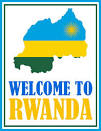This is a guest post by Paul Bogdanor
Marx and Engels recognised “only one way in which the murderous death agonies of the old society and the bloody birth throes of the new society can be shortened, simplified and concentrated” – namely, “revolutionary terror.” They anticipated “the disappearance from the face of the earth not only of reactionary classes and dynasties, but also of entire reactionary peoples.” They insisted that “in history nothing is achieved without violence and implacable ruthlessness…” And they demanded “an annihilating fight and ruthless terror” in the interests of the revolution. “We have no compassion,” they boasted, and “we shall not make excuses for the terror.”
In the seizure of power, Marx and Engels envisaged the centralisation of “all instruments of production in the hands of the state,” the “centralisation of credit in the hands of the state,” the “centralisation of the means of communication and transport in the hands of the state,” the “equal liability of all to work,” and the “establishment of industrial armies, especially for agriculture.”
At the same time, they energetically disputed charges that they were presenting a formula for universal slavery:
We are not among those communists who are out to destroy personal liberty, who wish to turn the world into one huge barrack or into a gigantic workhouse… We are convinced… that in no social order will personal freedom be so assured as in a society based upon communal ownership.
So they wrote in the inaugural issue of their Communist Journal. They promised to address the matter in subsequent issues, but published none.
To their left-wing anarchist critics, it was obvious that such protestations were empty. As Bakunin warned:
Marx and his friends… will create a single state bank, concentrating in their own hands all commercial, industrial, agricultural and even scientific production, and will divide the people into two armies, one industrial and one agrarian, under the direct command of state engineers, who will form a new privileged scientific and political class.
This prediction is well-known; what is not so familiar is the anarchist alternative. And here the positions were reversed. It was Marx and Engels who poured scorn on the left-wing anarchists for combining “anti-authoritarianism” with “barrack-room communism.” They singled out Bakunin, who in literature distributed in Russia had proposed “concentrating all the means of social existence in the hands of our [revolutionary] committee, and the proclamation of compulsory physical labour for everyone.” Dissenters, wrote Bakunin, would have “no right of access either to the communal eating places or to the communal dormitories,” and would thus be left “without means of subsistence.” Such people would have “no other alternative but work or death.”
Looking at the matter with an unprejudiced eye, is there any substantive difference between Marxist “centralisation” of the economy and left-anarchist “concentrating all the means of social existence”? Or between Marxist “equal liability of all to work” in “industrial armies” and left-anarchist “compulsory physical labour”?
From the universal duty to work in industrial armies, it was only a short step to Trotsky’s scheme for the “militarisation of labour” – “socially-regulated labour on the basis of an economic plan, obligatory for the whole people and consequently compulsory for each worker in the country.” Socialism, for Trotsky, meant forcing everyone else to work at the point of a gun. And yet he was most indignant when it was pointed out to him that his programme was a return to the slave practices of Ancient Egypt:
in Egypt there were Pharaohs, there were slave-owners and slaves… Our compulsion is applied by a workers’ and peasants’ government, in the name of the interests of the labouring masses.
Slavery ceased to be slavery, according to Trotsky, as soon as the masters claimed to speak for the slaves.
Nowadays left-wing radicals are anxious to efface their history of support for the hellish systems of Mao and Pol Pot, who slaughtered their victims by the millions for failing the demands of the totalitarian work regimen. Nevertheless, any objective inquiry will show that slave labour imposed by terror was not some aberration of “actually existing socialism,” but was integral to the ideas of the revolutionary left from the very beginning.
“Starting from unlimited freedom,” explained Dostoyevsky’s conspirator Shigalov, “I arrive at unlimited despotism.” So did his real-life counterparts.


